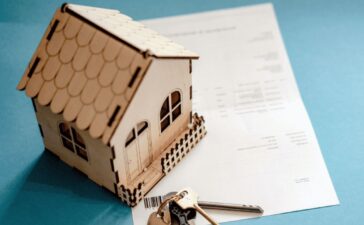Most people understand that using more electricity is going to have a negative impact on their bank balance and the environment, but they don’t always know what’s using the most electricity at home.
There are several common culprits when it comes to wasting energy in British homes – and if you want to save money and help the planet at the same time then these are areas worth looking at first.
The UK Is a Nation of Energy Wasters
In the UK, it’s a common misconception that we’re not as wasteful with energy as other countries. The average Brit uses around 3,000kWh of electricity annually—which is more than double the amount used by people in Italy (1,100kWh) or France (1,400kWh).
Does this mean we should be ashamed of ourselves? Not necessarily—there are several reasons why we use so much more energy than our European counterparts.
Many common culprits take the top spot when it comes to energy consumption in most households, visit UtilityBidder.co.uk to see how you can reduce your household’s energy consumption.
4 Energy-Consuming Appliances
These are the top five appliances in our homes that use the most energy.
Heating and Cooling
It turns out that heating and cooling are the two biggest uses of electricity in homes. Heating is more expensive than cooling, but both use a lot of energy. Heating is common in the winter, while cooling is common in the summer.
Heating and cooling refers to all of the devices that keep you warm when the temperature drops and cool when it gets too hot. This includes your furnace or air conditioner, as well as any fans used to circulate air throughout the house during these times.
Also included in this category are hot water heaters; they make use of gas or electricity to warm up cold water so that it can be used for activities such as showering, washing dishes or clothes, etc. You may want to consider investing in an energy-efficient model if yours has been around for a while and doesn’t seem very efficient anymore.
Appliances like refrigerators and dishwashers will use quite a bit of electricity as well when running; however, most modern units should have better than 80% efficiency ratings.
Hot Water
Hot water is a big energy user, but it doesn’t have to be. As long as you’re willing to change your showering habits, you can save money on your electric bill and reduce your carbon footprint at the same time.
The average energy costs for most households are accounted for by washing machines, dishwashers, and tumble dryers. Due to the energy needed to heat the water they consume, they are home equipment that uses a lot of energy.
To save electricity, wash a full load of laundry instead of a half load and actively choose to wash your garments at a lower-temperature setting. Prior to turning on your dishwasher, select the Eco setting and make an effort to let it get as full as possible.
Lighting and Appliances
Lighting and appliances are the next biggest energy hogs in your home, accounting for almost half of all electricity use. If you have a four-bedroom house or larger (and many of us do), lighting and appliances will account for almost three-quarters of your total home electricity use.
About 5% of a typical home’s energy costs go toward lighting. LEDs can be used in place of halogen lamps to minimise energy consumption.
Use compact fluorescent light bulbs (CFLs) rather than incandescent bulbs. CFLs use less electricity than regular bulbs and last up to ten times longer. Plus they’re easy to install—you just screw them in like normal light bulbs!
Fridges and Freezers
The average household’s energy bill also includes 12–13% of the cost of refrigerators and freezers. These appliances must always be on by their very nature, thus they constantly need the energy to keep the temperature steady.
They are also among our home’s most durable appliances. Buying energy-efficient appliances is a great idea because they will be used often and may last you well over 12 years.
The next time you need to get a new refrigerator or freezer, take into account both the smallest model that will fulfil your demands and the best model you can afford.
Conclusion
If you’re looking to reduce your energy usage and save money in the process, it’s worth taking a look at these areas first. We hope this article has helped you to identify where some of your biggest energy hogs might be hiding in plain sight!






